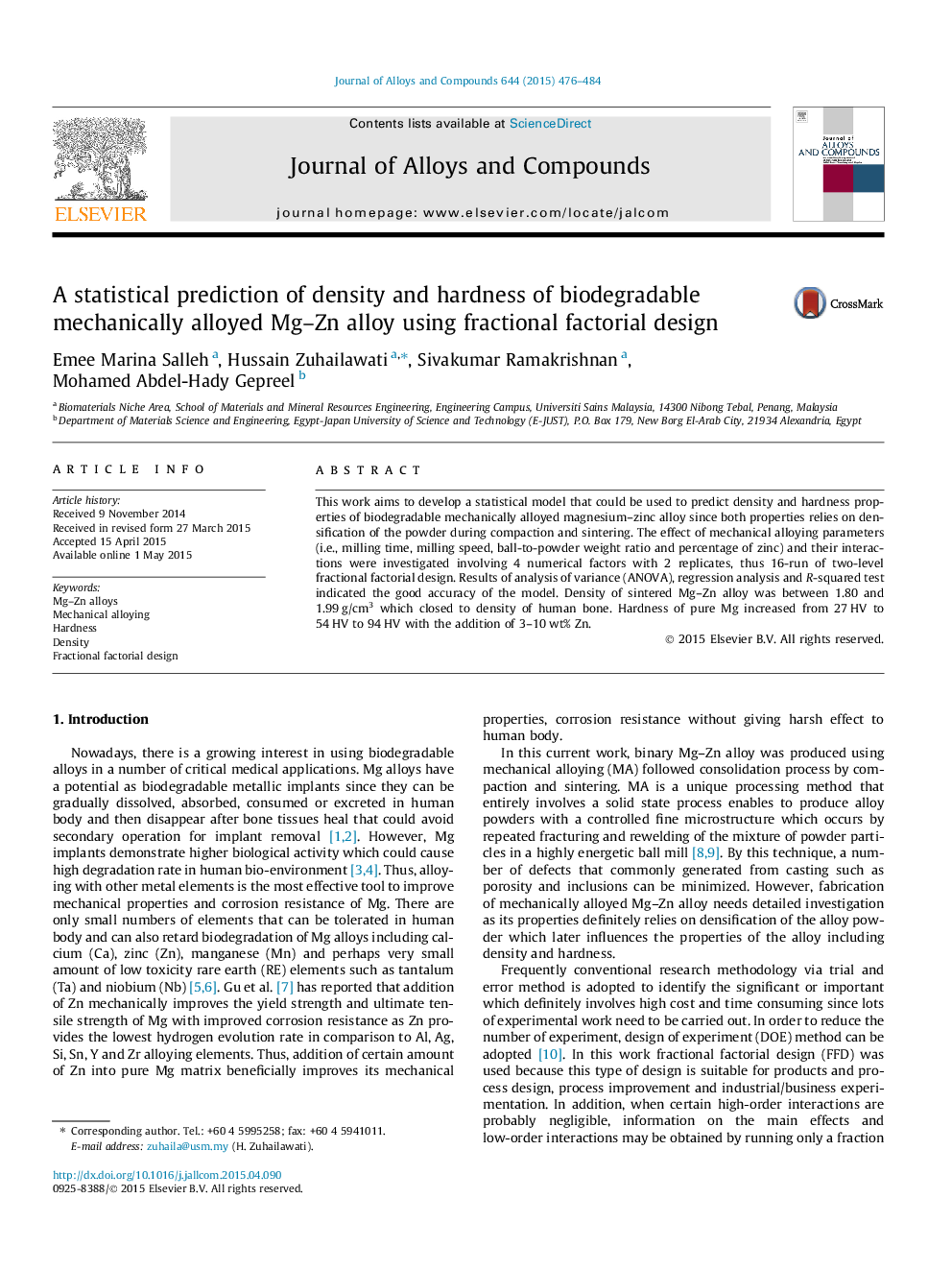| Article ID | Journal | Published Year | Pages | File Type |
|---|---|---|---|---|
| 7998611 | Journal of Alloys and Compounds | 2015 | 9 Pages |
Abstract
This work aims to develop a statistical model that could be used to predict density and hardness properties of biodegradable mechanically alloyed magnesium-zinc alloy since both properties relies on densification of the powder during compaction and sintering. The effect of mechanical alloying parameters (i.e., milling time, milling speed, ball-to-powder weight ratio and percentage of zinc) and their interactions were investigated involving 4 numerical factors with 2 replicates, thus 16-run of two-level fractional factorial design. Results of analysis of variance (ANOVA), regression analysis and R-squared test indicated the good accuracy of the model. Density of sintered Mg-Zn alloy was between 1.80 and 1.99Â g/cm3 which closed to density of human bone. Hardness of pure Mg increased from 27Â HV to 54Â HV to 94Â HV with the addition of 3-10Â wt% Zn.
Related Topics
Physical Sciences and Engineering
Materials Science
Metals and Alloys
Authors
Emee Marina Salleh, Hussain Zuhailawati, Sivakumar Ramakrishnan, Mohamed Abdel-Hady Gepreel,
